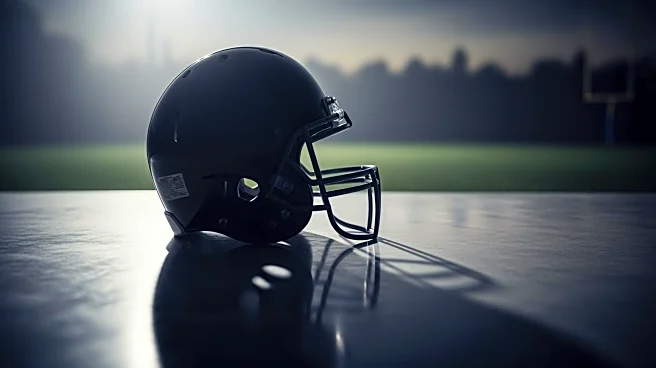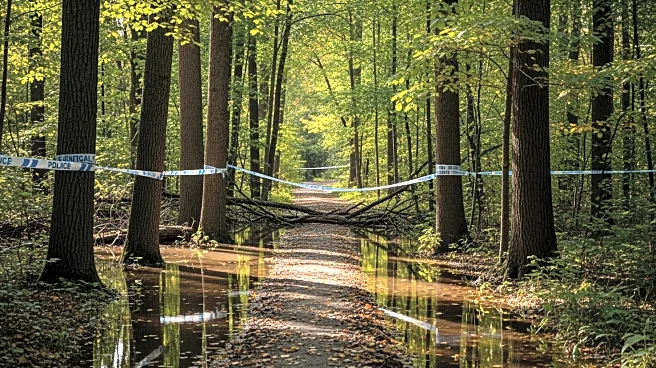What's Happening?
Marshawn Kneeland, a 24-year-old defensive end for the Dallas Cowboys, was found dead from an apparent suicide after a police chase in a Dallas suburb. The incident began when Kneeland evaded Texas Department
of Public Safety troopers over a traffic violation. The chase, which was joined by Frisco police, ended when authorities lost sight of Kneeland's vehicle, which was later found crashed. Kneeland fled the scene on foot, and during the search, police received information that he might be suicidal. A dispatcher reported that Kneeland had sent a group text saying goodbye, raising concerns for his welfare. Despite efforts to contact him, including calls, texts, and the use of a drone, Kneeland was found dead from a self-inflicted gunshot wound. The incident has prompted tributes from the NFL community, including a moment of silence by the Denver Broncos before their game against the Las Vegas Raiders.
Why It's Important?
The death of Marshawn Kneeland highlights the ongoing issue of mental health struggles among professional athletes. Kneeland's passing has sparked discussions about the pressures faced by athletes and the importance of mental health support. The NFL and the Dallas Cowboys have expressed their condolences and offered support to Kneeland's family and teammates. This tragedy underscores the need for increased awareness and resources for mental health, particularly in high-pressure environments like professional sports. The incident also brings attention to the broader societal issue of suicide and the importance of providing accessible mental health resources to those in need.
What's Next?
In the wake of Kneeland's death, the Dallas Cowboys and the NFL are likely to review and potentially enhance their mental health support systems for players. The incident may lead to increased advocacy for mental health awareness and suicide prevention within the sports community. Additionally, the Cowboys will need to address the impact of Kneeland's loss on their team dynamics and roster strategy. The NFL community may also see a rise in initiatives aimed at supporting players' mental well-being, as well as public discussions on the importance of mental health care.
Beyond the Headlines
Kneeland's death raises ethical and cultural questions about the stigma surrounding mental health in sports. It challenges the perception of athletes as invulnerable and highlights the need for a cultural shift towards openness and support for mental health issues. The incident may also influence how teams and leagues approach player welfare, potentially leading to policy changes that prioritize mental health alongside physical health. This tragedy serves as a reminder of the hidden struggles individuals may face, regardless of their public persona or professional success.








